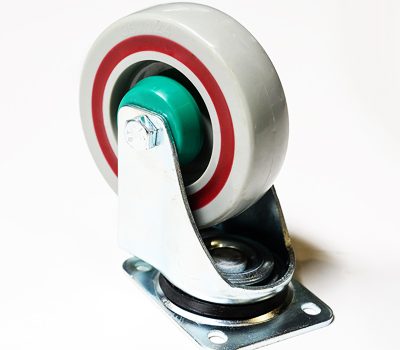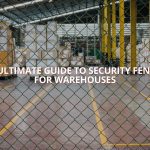Roll Cage Castors – Which ones should I use?
A roll cage is only as good as the castors fitted to it and if the wheel fails, then the cage cannot be used. But finding castors that match your equipment and specific purposes can be a challenge, especially if you’re not an expert. In this article, we’re going to have a quick rundown of what you need to consider before choosing the right castor for your operating environment.
What Is A Castor?
A castor is a wheel that attaches to the bottom of a mobile object, such as a roll cage. All castors have the same basic design – a wheel sits on a set of bearings, and then attaches to the unit being operated. However, the specifications and features vary. Colours, sizes, materials and weight-bearing tolerances all differ between models.
What To Consider When Choosing A Castor
Roll cage castors come in a variety of shapes and sizes. Here are some pointers on how to make the right choice.
Floor Surface
Floor surfaces are a factor to consider when choosing roll cage castors. If you’re working on a rough floor, you may need heavy-duty polyurethane tyred castors. If you’re operating on smooth surfaces (for instance, in a supermarket), you might consider non-marking rubber castors. White nylon castors are a hard wearing and robust alternative giving a long life but are noisier in operation that a rubber or composite castor.
Load Capacity
Roll cages allow the operative to more easily move loads around their premises. How much weight you need to support, though, depends heavily on your industry.
The load capacity of castors varies considerably and choosing the right castor is therefore important to ensure the roll cage is capable of carrying the load consignment.
Typically, always choose a castor and wheel with a greater capacity than your likely to need. This ensures that your castors can stand up to any unexpected conditions.
Mobility
The larger the wheel, the easier it rolls and larger diameter wheels provide more manoeuvrability. Roller bearings carry heavier loads. Ball bearings are easier to roll but carry lesser loads. Where possible, use the largest ball bearing wheels for best results.
Extreme Temperatures
Extreme cold or heat can limit the mobility of castors but lubricants are available that can keep your castors rolling in extreme temperatures. Always consider the operating environment the cages are to be used in to ensure you make the correct decision on wheel type.
Use Case
All sorts of industries need castors to support their operations. Retailers and supermarkets, healthcare providers, logistics companies, travel firms and the automotive industry are heavily dependent on them. The type of castor you choose, therefore, will depend on conditions in these particular industries. Some firms will use their roll cages multiple times each day, while others only a few times each week. And, as a result, their requirements for quality castors will differ.
Wheel material should be carefully selected – hard materials such as nylon have a lower rolling resistance; polyurethane wheels are quieter on rough surfaces and rubber wheels are often a good option and are quiet in operation. Castors and wheels should be subject to routine maintenance, along with the roll cage generally.
Distribution Maintenance offer a broad range of services including new roll cages, along with roll cage repair and maintenance and other associated equipment. Offering volume discounts and competitive rates. We can have your orders ready for delivery or collection within 24 hours, depending on peak periods.
Get in touch with us today to talk through your needs. Why not Chat to us online, call us on 01279 883 286 or send a message to ben@distributionmaintenance.com or info@distributionmaintenance.com. Further information about our full service range can be found on our website.









